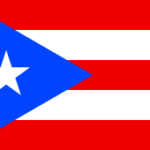Fees for registering Puerto Rico trademarks
Service Process
Trademark registration time
Puerto Rico is a free state (overseas territory) of the United States in the Caribbean region, and trademarks registered under US federal law automatically receive extended protection in Puerto Rico. In addition, Puerto Rico has independent trademark regulations, and its current trademark regulations are mainly based on the Trademark Law No. 169 promulgated on December 16, 2009, which was amended in 2011. The Puerto Rico Trademark Office is responsible for managing trademark affairs and the official language is Spanish. Trademark exclusive rights need to be obtained through registration. Trademark registration is not mandatory, but in order to protect the trademark or renew it, it must be registered in accordance with the law. Puerto Rico's trademark application cannot claim priority.
Trademark Registration Process
At present, the Puerto Rico Trademark Office adopts the Nice Classification 11th edition for the description of goods and services, and refers to the US Goods and Services Classification standards, and does not accept applications with multiple categories in one form. The elements that can be registered as trademarks in Puerto Rico include: text, name, graphics, letters, color, three-dimensional logo, sound, and odor.
Applying for a Puerto Rico trademark requires entrusting a specialized agent in the country to handle it. The basic materials required for trademark application are:
1. Trademark name;
2. Trademark design or text;
3. Specific categories and product/service items;
4. Name and address of the applicant;
5. Application basis (intended or actual use, not based on US registration). Actual use: Evidence of use must be submitted when applying, and it is required to be consistent with the United States; Intentional use: An affidavit of use must be submitted within the third year from the application date; All applicants must submit a continuous use affidavit and evidence in the 5th to 6th year and the 9th to 10th year.
The main process for applying for registration of a Puerto Rico trademark is: application - acceptance - examination - announcement - approval of registration. After the application is submitted, the examiner will conduct a formal and substantive examination of the application. Formal review mainly examines whether the application requirements and classification information comply with regulations; The substantive examination includes the examination of the distinctiveness of the trademark, whether it violates the prohibition and prohibition clauses, and whether it conflicts with the prior trademark. After the review is approved, an announcement will be arranged, and the 30 day objection period will be from the announcement date. Any interested party or prior right holder may raise objections, and the main reasons for raising objections are:
1. Conflict with prior trademarks, such as owning a prior registered trademark;
2. The trademark lacks distinctiveness;
3. The trademark has adverse effects;
4. Malicious registration;
5. Conflict with other prior rights, such as trade name rights, design rights, copyrights, personal names, etc;
6. The slogan trademark lacks originality.
If there are no objections or objections are not valid during the announcement period, the registration can be approved and a registration certificate can be issued; If the review fails, a rejection notice will be issued and the applicant will be required to respond within the time limit specified in the rejection notice. If everything goes smoothly, trademark registration in Puerto Rico will take about 15-20 months; If there are objections or rejections encountered midway, the time will be greatly extended.
Trademark registration materials
The Puerto Rico trademark is valid for 10 years after registration, starting from the date of application; Renewal can be processed within 12 months before the expiration date, with a grace period of 6 months; The renewal is valid for 10 years.
The revocation application after trademark registration can generally be filed in accordance with Article 20 of Puerto Rico's Trademark Law No. 169 issued on December 16, 2009. The main reasons for revocation are:
(1) Violation of Article 27 of the law regarding the registration of trademarks;
(2) Registering a trademark is obtained through deceptive means or maliciously registered;
(3) Registering a trademark as a generic name for designated goods or services;
(4) Without justifiable reasons, the trademark has not been actually used in the country for three consecutive years after registration.
Start Your Trademark Business
Start Registration

do not understand? Contact us

do not understand? Contact us

do not understand? Contact us

do not understand? Contact us


 Puerto Rico
Puerto Rico